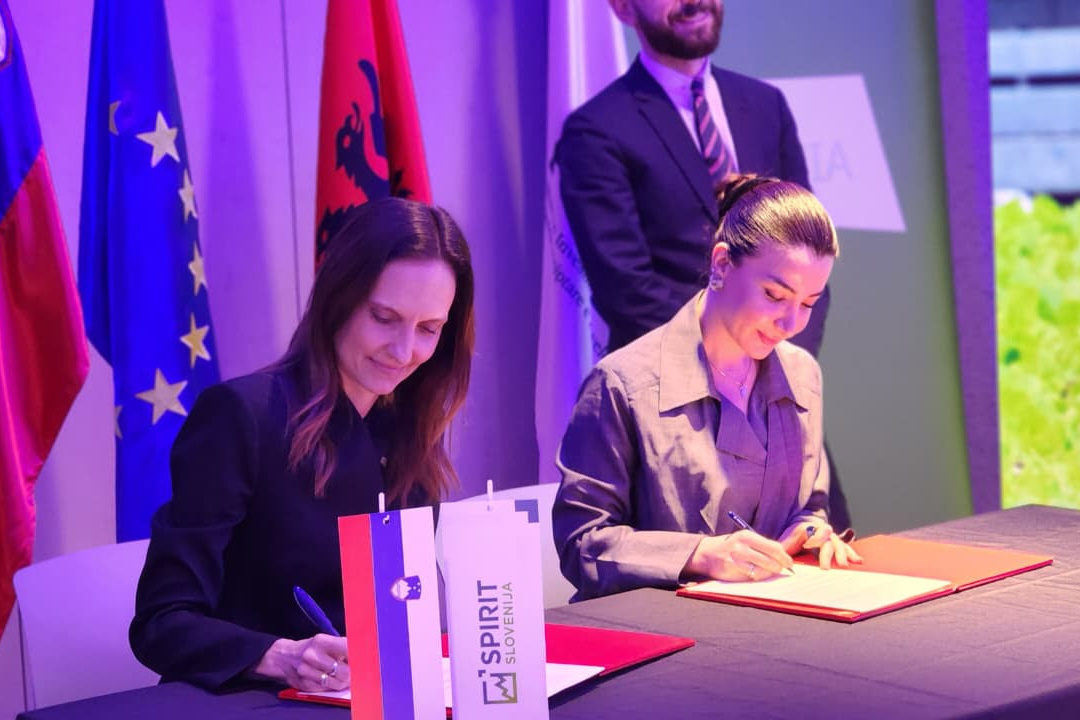Insurance needs a new language that explains rather than entertains
In a world that increasingly trades complexity for convenience, Slovenia’s insurance leaders gathered last week to make a stark case: maturity still matters.
Andraž Tavčar
The Slovenian insurance industry opened its flagship annual conference this week with an uncomfortable truth. Their sector is not and should not try to be fashionable. Nor, as Sergej Simoniti put it, should it be designed for Instagram.
Simoniti, head of the organising committee and director of Coface Slovenia, used his keynote address to confront a central dilemma. How can a profession rooted in complexity and long-term thinking communicate its message in a culture that increasingly rewards simplicity and spectacle. “If insurance becomes entertaining,” he warned, “we are already beyond what insurance is. We are selling illusions.”
He described a public discourse that has become binary and performative. One that prefers immediacy over substance and indulges a creeping cultural infantilism. “Insurance needs a new language,” Simoniti argued. “Not to make it easier to swallow, but to make it understandable again.”
The mood shifted decisively with the headline lecture by British criminologist Dr Keith Hayward, who painted a sobering picture of societal regression.
“Just as fish rot from the head, so too does infantile politics begin at the top and spread through the body of democracy.”
In Hayward’s framing, Western societies are experiencing not merely a loss of maturity, but a collapse of adulthood as a cultural value. Leaders have become mirrors of their own narcissism. Institutions have surrendered to the logic of applause. In a world that idealises youth and disdains complexity, the very concept of maturity has become suspect.
Hayward argued that the true agent of this shift is not ideology but advertising. Where Orwell once described propaganda as the sound of a stick striking a slop bucket, Hayward updated the metaphor. “The stick is still there,” he said, “but now it is wielded by children.” Advertising no longer appeals to reasoning adults but to consumers conditioned to behave like children. The goal is not to inform but to persuade without resistance.
In this environment, he said, the ideal consumer is impulsive, suggestible and disengaged from consequence. “They want now, not later. They do not lead. They must be led. Freedom will be replaced by managed safety.” In such a world, liberal democracy risks being displaced by what he termed infantocracy. Not tyranny, but a soft regime of reassurance where leaders do not govern but soothe.
Simoniti’s concern was whether insurance can remain immune to these pressures. A field built on risk analysis and responsible decision-making struggles to survive in a marketplace that treats all seriousness as a flaw. In his view, the challenge is not whether to simplify but how to do so without sacrificing integrity.
A panel discussion on marketing explored the same question. Is simplification a necessary tool or a trap. Hayward suggested that the answer lies in history rather than conspiracy. Since the 1960s, he said, commercial forces have absorbed and neutralised the language of resistance. “Irony has become the default mode of expression,” he said. “Nothing can be taken seriously anymore because seriousness makes us vulnerable.”
Simoniti turned the conversation to Slovenia’s own cultural inheritance. He described a society still shaped by its socialist past, with a deep-seated expectation that the state will absorb all risks.
“We do not want freedom because freedom requires responsibility.”
Education, in his view, no longer equips citizens to think critically. “Without expression there is no understanding. And without understanding there is no responsibility.”
He urged the industry to foster a culture of risk literacy beginning with younger generations. “We must teach them not only what risks exist but how they can be managed.”
Yet he cautioned against embracing complexity for its own sake. Accessibility is not the enemy. “The question is how to offer financial security to those with no legal or economic background. It can be done. But not by pretending risk does not exist.”
The conference concluded with a consensus. Insurance cannot afford to surrender to the cultural winds that seek to simplify everything into comfort. Its role is not to flatter. It is to prepare. To do otherwise would be to drift into irrelevance while the future arrives unguarded.









